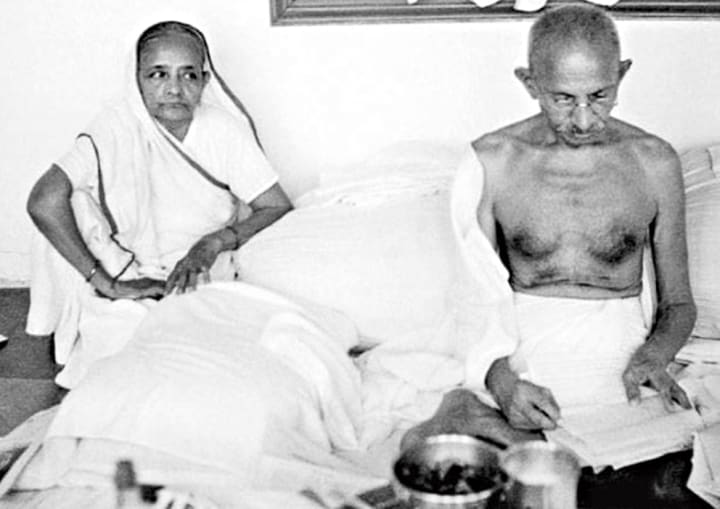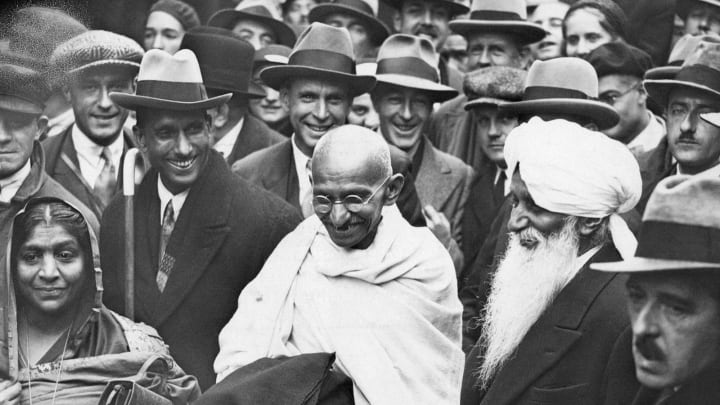
Introduction
Mahatma Gandhi is one of the most iconic figures in Indian history. He played a pivotal role in India's struggle for independence, and his ideas of non-violent resistance and civil disobedience have inspired numerous movements for justice and equality around the world. This article will explore the life, philosophy, and legacy of Mahatma Gandhi.
Early Life of Mahatma Gandhi
Mohandas Karamchand Gandhi was born in Porbandar, a coastal town in present-day Gujarat, India, in 1869. His father was a chief minister of the town, and his mother was deeply religious. Gandhi was a mediocre student, but he was deeply influenced by his mother's religious beliefs and values. He went to London in 1888 to study law but returned to India in 1891 to practice law in Bombay.

Life in South Africa
In 1893, Gandhi was offered a job in South Africa, where he spent the next 21 years of his life. It was in South Africa that Gandhi first experienced racial discrimination and realized the extent of British imperialism. He formed the Natal Indian Congress in 1894 to fight for the rights of Indians in South Africa. Gandhi's experiences in South Africa led him to develop the concept of Satyagraha, which means "truth force" or "soul force." Satyagraha is a form of non-violent resistance that aims to bring about social change through peaceful means.
Return to India
Gandhi returned to India in 1915 and became involved in the Indian National Congress, which was fighting for India's independence from British rule. He quickly became one of the most influential leaders of the Congress and led several movements for Indian independence, including the Non-Cooperation Movement, the Salt Satyagraha, and the Quit India Movement.

Mahatma Gandhi's Philosophy
Gandhi's philosophy was based on the principles of Satyagraha, Ahimsa (non-violence), and Swaraj (self-rule). Satyagraha was a way of life for Gandhi, and he believed that it was the most powerful tool for social change. Ahimsa was the cornerstone of Gandhi's philosophy, and he believed that violence could never be justified, even in the face of oppression. Swaraj was Gandhi's vision for India, which was to be a country where the people ruled themselves.
Legacy of Mahatma Gandhi
Gandhi's legacy is immense, both in India and around the world. His ideas of non-violent resistance and civil disobedience have inspired countless movements for justice and equality, including the American Civil Rights Movement and the Anti-Apartheid Movement in South Africa. In India, Gandhi is known as the "Father of the Nation" and is revered as a national hero.

Gandhi's influence on Indian independence is perhaps his greatest legacy. He played a crucial role in organizing and leading the Indian National Congress, and his philosophy of non-violent resistance was instrumental in India's struggle for freedom from British rule. His most famous campaigns, the Non-Cooperation Movement, the Salt Satyagraha, and the Quit India Movement, all aimed to peacefully disrupt British rule in India.
Gandhi's influence on other civil rights leaders around the world is also significant. Martin Luther King Jr. was deeply inspired by Gandhi's philosophy of non-violent resistance, and he famously traveled to India to learn more about it. Nelson Mandela, too, cited Gandhi as one of his biggest influences in his struggle against apartheid in South Africa. Gandhi's ideas of non-violent resistance continue to inspire social justice movements around the world to this day.
But Gandhi's legacy is not without controversy. Some have criticized his views on race and caste, and his approach to dealing with the violence and tensions between Hindus and Muslims during the partition of India in 1947 has also been criticized. Nevertheless, his impact on the world cannot be denied.

Early Life and Education
Mohandas Karamchand Gandhi was born in Porbandar, India, in 1869. His father was a high-ranking official in the local government, and Gandhi was raised in a middle-class family. At the age of 13, Gandhi was married to Kasturbai Makhanji, a girl his own age.
After finishing his primary education in India, Gandhi travelled to England to study law. He was called to the bar in 1891 and returned to India, but struggled to establish himself as a lawyer. In 1893, he accepted a job in South Africa, where he encountered racism and discrimination against Indians.

Activism in South Africa
Gandhi's experiences in South Africa were a turning point in his life. He became an activist, fighting for the rights of Indians living in the country. He also developed his philosophy of non-violent resistance, which he called Satyagraha, meaning "truth force" or "soul force".
Gandhi's activism in South Africa included leading campaigns against discriminatory laws, organizing protests and strikes, and even spending time in jail. Through his non-violent resistance, he was able to bring attention to the injustices faced by Indians in South Africa and eventually secure some basic rights for them.

Return to India and Independence Movement
Gandhi returned to India in 1915 and became involved in the Indian independence movement. He quickly rose to become one of its most prominent leaders, advocating for non-violent resistance as a means of achieving independence from British rule.
Gandhi's most famous campaigns in India include the Non-Cooperation Movement, which called for Indians to boycott British institutions and products, and the Salt Satyagraha, which involved a nationwide civil disobedience campaign against the British salt tax. These campaigns and others helped galvanize support for Indian independence and put pressure on the British government to negotiate with Indian leaders.
Legacy and Impact
Gandhi's legacy is still felt today, both in India and around the world. His philosophy of non-violent resistance has inspired countless movements for justice and equality, and his ideas of civil disobedience and peaceful protest continue to be used as effective tools for social change.
In India, Gandhi is celebrated as a national hero and revered for his role in the country's independence movement. His image and teachings are still widely used in politics and popular culture, and his birthday, October 2nd, is celebrated as a national holiday.
However, Gandhi's legacy is not without controversy. Some have criticized his views on race and caste, and his approach to dealing with the violence and tensions between Hindus and Muslims during the partition of India in 1947 has also been criticized.
Despite these criticisms, Gandhi's impact on the world is undeniable. His philosophy of non-violent resistance continues to inspire social justice movements around the world, and his legacy as a champion for peace and equality will continue to be remembered for generations to come.

About the Creator
Navanithe
I am an enthusiastic, self-motivated, reliable, responsible, and hard-working person. I am a mature team worker and am adaptable to all challenging situations. I am able to work well both in a team environment and on my own initiative.






Comments
There are no comments for this story
Be the first to respond and start the conversation.